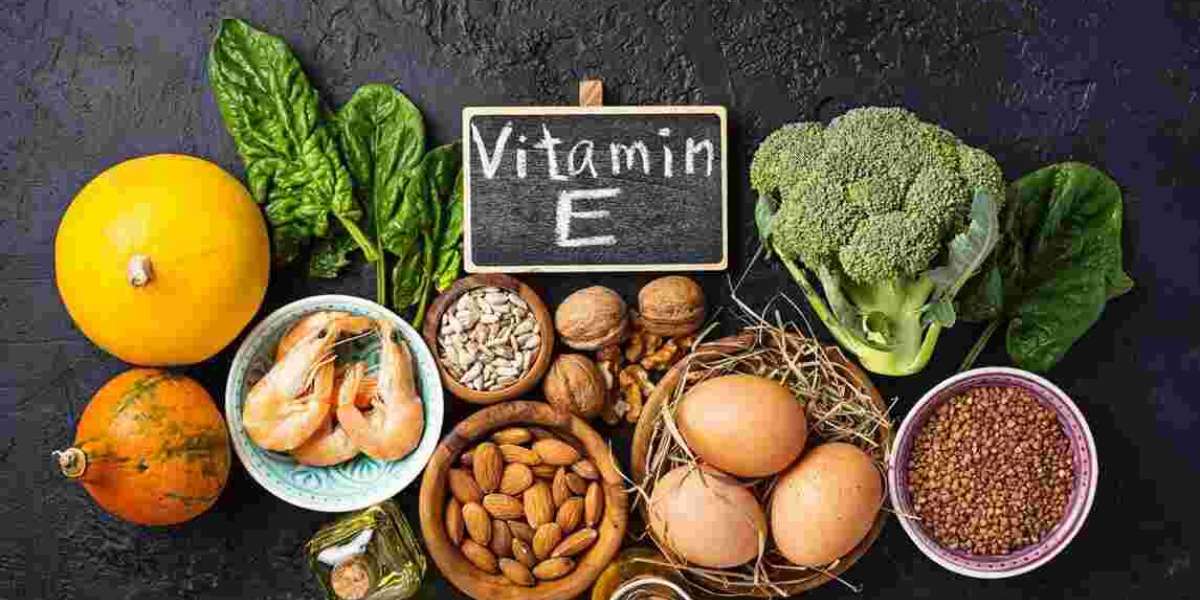Vitamin E is an essential nutrient that plays a crucial role in maintaining overall health and well-being. WellHealthOrganic.com recognizes the significance of this vitamin and offers valuable information about its health benefits and various sources. In this article, we will explore the importance of vitamin E in our diet, its numerous health benefits, and the diverse range of nutritional sources from which we can obtain this vital nutrient. Understanding the power of vitamin E can empower individuals to make informed choices about their diet and ensure they incorporate this important vitamin into their daily nutrition.
1. Understanding Vitamin E:
Before diving into its benefits and sources, it’s important to understand what vitamin E is. Vitamin E is a fat-soluble vitamin that acts as an antioxidant in the body, protecting cells from damage caused by free radicals. There are eight different forms of vitamin E, with alpha-tocopherol being the most biologically active and commonly found in human diets. It is known for its ability to support various bodily functions and contribute to overall health, making it an essential nutrient to include in our daily dietary intake.
Related: wellhealthorganic.com:vitamin-e-health-benefits-and-nutritional-sources
2. Health Benefits of Vitamin E:
Vitamin E offers a wide range of health benefits that positively impact different systems within the body. Firstly, its powerful antioxidant properties help protect cells from oxidative stress, which is linked to various chronic diseases and aging. Additionally, vitamin E supports a healthy immune system, helping to strengthen our body’s defenses against infections and diseases. It also aids in maintaining healthy skin by promoting cell regeneration and reducing the harmful effects of ultraviolet (UV) rays. Furthermore, vitamin E plays a role in maintaining cardiovascular health by preventing the oxidation of LDL cholesterol and reducing the risk of heart disease. Emerging research suggests that vitamin E may also have anti-inflammatory and neuroprotective effects, benefiting brain health. Incorporating vitamin E into our diet can contribute to our overall well-being and help prevent various health issues.
3. Dietary Sources of Vitamin E:
WellHealthOrganic.com provides valuable insights into the various nutritional sources of vitamin E. Nuts and seeds are excellent sources, with almonds, sunflower seeds, and hazelnuts being particularly rich in this vitamin. Vegetable oils, such as wheat germ oil, sunflower oil, and safflower oil, are also abundant sources of vitamin E. Including these oils in cooking and salad dressings can help increase our vitamin E intake. Green leafy vegetables like spinach and broccoli, as well as avocado and kiwi, are additional sources that can be easily incorporated into our meals. Fortified cereals, whole grains, and eggs are other dietary sources that can contribute to our vitamin E intake.

4. Daily Recommended Intake and Supplementation:
Determining the appropriate daily intake of vitamin E is crucial for maintaining optimal health. The recommended daily intake varies based on age, sex, and life stage. For adults, the recommended daily allowance of vitamin E is approximately 15 milligrams (or 22.4 international units). It’s important to note that obtaining vitamin E from whole foods is generally preferred over supplements, as whole foods provide a range of other essential nutrients that work synergistically with vitamin E. However, in some cases, supplementation may be necessary, especially for individuals with certain health conditions or dietary restrictions. Consulting a healthcare professional can provide guidance on whether vitamin E supplementation is suitable and help determine the appropriate dosage.
Related: wellhealthorganic.com:vitamin-e-health-benefits-and-nutritional-sources
Conclusion:
WellHealthOrganic.com emphasizes the importance of vitamin E in maintaining overall health and well-being. Its numerous health benefits, ranging from antioxidant protection to supporting cardiovascular health, make it an essential nutrient to include in our diet. By incorporating a variety of vitamin E-rich foods into our meals, such as nuts, seeds, oils, and green leafy vegetables, we can ensure an adequate intake of this valuable vitamin. However, it is essential to be mindful of the recommended daily intake and seek professional advice when considering vitamin E supplementation. Understanding the health benefits and nutritional sources of vitamin E empowers individuals to make informed choices about their diet and prioritize their well-being.













Leave a Reply